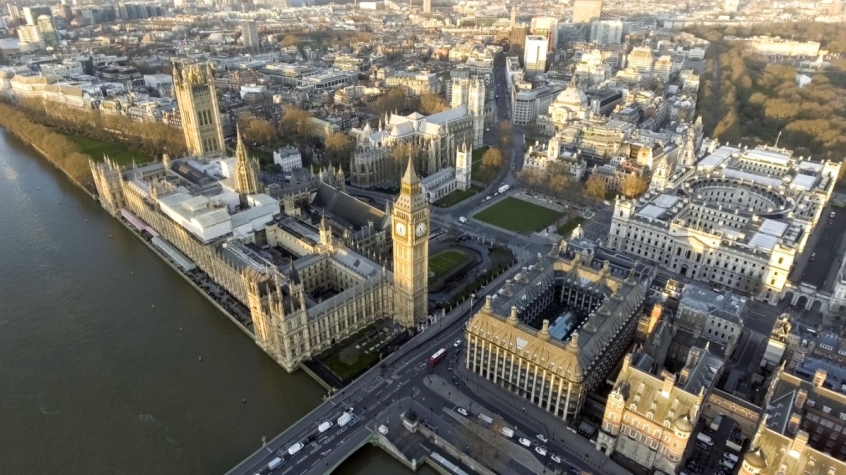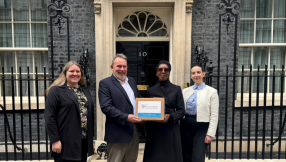
Protesters have gathered outside Parliament to make their opposition to assisted suicide known as MPs debate Kim Leadbeater's bill proposing a change to the law.
The Labour MP's private member's bill outlines plans to legalise assisted suicide for terminally ill people if they have the mental capacity to make the decision for themselves and the consent of two doctors and a High Court judge.
Supporters claim it will give people dignity at the end of their life but opponents say it will put vulnerable people at risk of coercion. Critics also fear that promised safeguards are unlikely to hold for long before the criteria is widened to include non-terminal conditions, as has happened in countries where it is already legal like Canada, the Netherlands and Belgium.
Christian Concern and Distant Voices have organised a protest outside Parliament as MPs debate the bill on Friday.
Andrea Williams, chief executive of Christian Concern and a non-practising barrister, is sceptical of supposed protection measures in the bill.
"This bill contains no meaningful safeguards that would hold up in real life. They seem to be designed to give the appearance of rigour, but to fail in practice and immediately be jettisoned," she said.
"Requiring a judge to approve a request for assisted suicide is unworkable in practice. The thousands of cases flooding into the legal system would render any serious attempt at oversight impractical.
"It is deeply shocking that this bill specifically allows doctors to raise the option of assisted suicide with vulnerable patients at their sole discretion. Doctors should not be allowed to suggest suicide to any patient.
"As we have seen around the world where assisted suicide is available, people are made to feel like a burden and numbers skyrocket. Death is offered as if it is a treatment option and in time, pressures on NHS funding would inevitably mean that the choice to live is taken away from those who want it.
"A caring and compassionate society would never offer to facilitate suicide. That is the very opposite of caring and compassionate.
"Vulnerable people should not be offered suicide as an option."
Nikki Kenward, of Distant Voices, who was left locked in her own body by Guillain-Barré Syndrome, believes she would have opted for assisted suicide if it had been available at the time of her diagnosis but is now glad that she lived to experience precious milestones with her family, like seeing her son grow up and get married.
"If you'd asked me then, I would have said I'd rather not live," she said.
"Just one of my eyes would open and I think if my family had been asked by the hospital they'd have opted to end my life. I hadn't seen my son for months and the thought of him being without me broke my heart more than what was happening to me."
She added, "I believe that suicide is not the answer, the answer is to be cared for with absolutely brilliant, palliative care."
Ross Hendry, head of Christian advocacy group CARE, is urging MPs to vote against the proposals. He called them "morally wrong and practically dangerous", and said that the evidence from other countries showed that safeguards "don't work".
"This practice fundamentally alters the value societies ascribe to human life. Assisted suicide creates a two-tier society where some lives are seen as not worth living and afforded less protection. Rather than stepping into the business of ending life, the government should seek to bolster existing, life-affirming support for dying people," he said.
"The evidence of how 'assisted dying' laws work in other countries should be troubling to all of us, whatever our principled position on this matter. Assisted deaths are often not the painless and peaceful deaths campaigners present them as. They are medically dangerous and known to cause trauma to patients, their loved ones, and doctors.
"It's also clear that 'safeguards' don't work. No number of safeguards can remove the threat of patient coercion. Citizens choosing assisted suicide would do so because they feel like a burden or lack support. Deaths under a UK law would be driven by citizens' experiences of poverty, healthcare inequality, social isolation, and other factors.
"At present, our society seeks to prevent every suicide and offer compassionate, life-affirming support to people who are struggling. We believe this is the right approach, and the one that best guarantees the protection of vulnerable groups. We'd ask parliamentarians to uphold it now, and in the years ahead."













